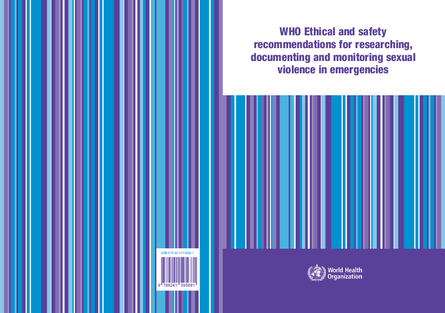
Sexual violence in humanitarian emergencies, such as armed con- flict and natural disasters, is a serious, even life-threatening, public health and human rights issue. Growing concern about the scale of the problem has led to increased efforts to learn more about the contexts in which this particular form of violence occurs, its prevalence, risk factors, its links to HIV infection, and also how best to prevent and respond to it. Recent years have thus seen an increase in the number of information gathering activities that deal with sexual violence in emergencies. These activities often involve interviewing women about their experiences of sexual violence. It is generally accepted that the prevalence of sexual violence is underreported almost everywhere in the world. This is an inevitable result of survivors’ well-founded anxiety about the potentially harmful social, physical, psychological and/or legal consequences of disclosing their experience of sexual violence. In emergency situations, which are characterized by instability, insecurity, fear, dependence and loss of autonomy, as well as a breakdown of law and order, and widespread disruption of community and family support systems, victims of sexual violence may be even less likely to disclose incidents.
Obtaining information about sexual violence requires individuals to confront, admit to and discuss an issue that is extremely sensitive, both culturally and socially. In particular, survivors are often asked to describe difficult and painful past or recent experiences, which may result in distress. Community members may be asked to talk openly about their views on a matter which, in many societies, is taboo. In some emergency settings, simply participating in sexual violence inquiries can have serious, even life-threatening implications, not only for the participants themselves, but for the community and those involved in collecting information.
